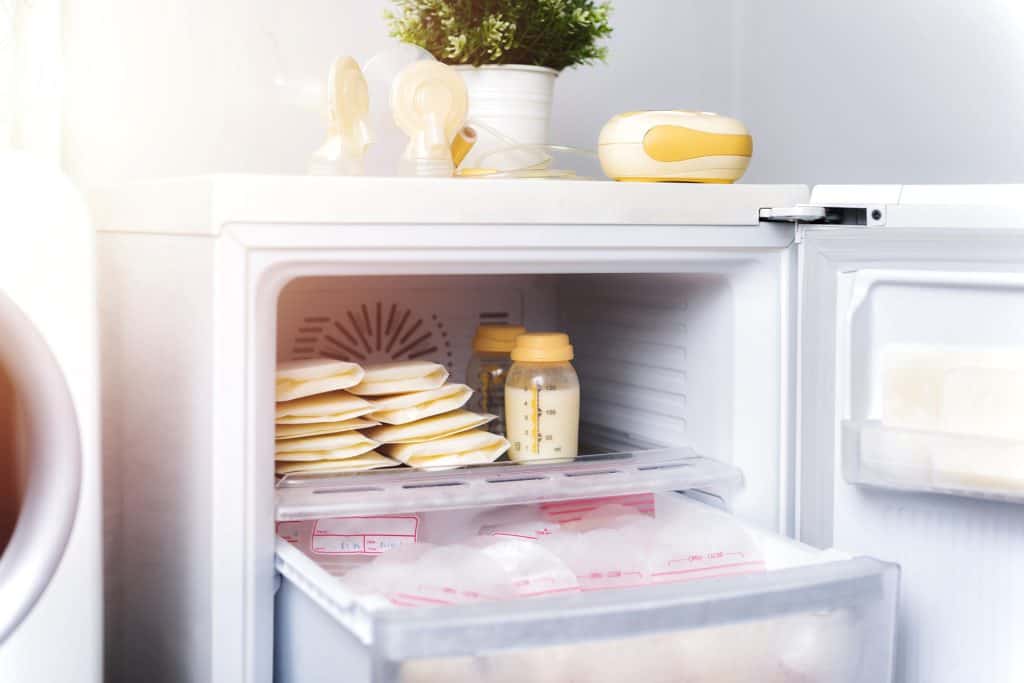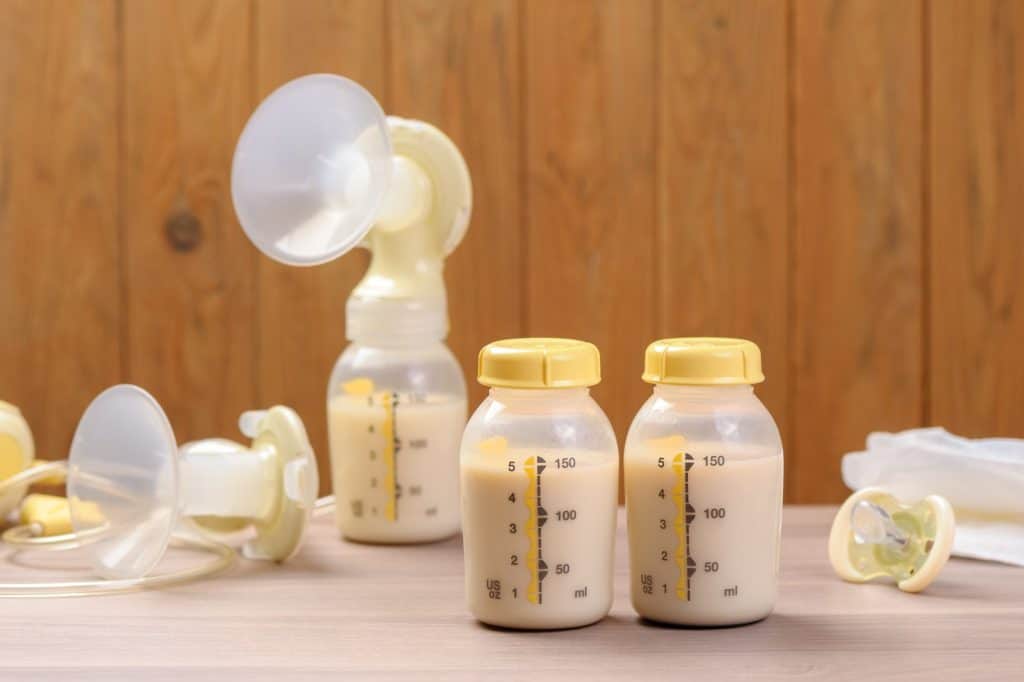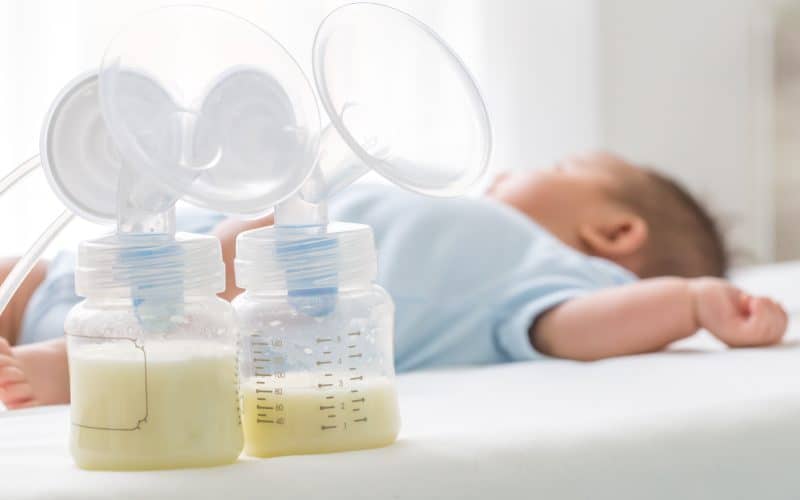Breast milk is essential for a baby’s healthy growth and development. It’s also known to have a unique smell and taste, but sometimes these can be early signs of certain health conditions. What does it mean if your breast milk smells like eggs, and how should you deal with it?
If your breast milk smells strongly of eggs, you might have elevated lipase levels. Lipase is an important enzyme that helps the body break down proteins, but high concentrations of it can make the process go faster, which can rapidly sour or even spoil breast milk.
This is especially noticeable after being left to rest for upwards of 12 hours in cold storage and is the likely culprit as to why your breastmilk may smell like eggs. The good news is that high lipase levels in milk are generally harmless for your infant.
It does alter the breast milk’s taste, smell, and shelf life, so it’s still in your best interest to deal with this issue ASAP!
Lipase can be reduced or even inactivated in a number of different ways – we’ll go over a few easy, practical options to curb that bothersome enzyme down below.
How to Deal With Breast Milk that Smells like Eggs
Store (and Use) Breast Milk Properly

Lipase is an enzyme that speeds up rancidity, but other elements like temperature, light exposure, and oxygen availability also play huge parts in that process. Even if you do lower the lipase levels, your breast milk would still end up ruined due to improper storage methods.
Store your milk in airtight containers, then promptly place them in your fridge or freezer. Leaving breast milk out at room temperature, even briefly, can seriously alter its smell, taste, and shelf life.
Lipase usually takes between 12-24 hours to activate, so if you feed them within that window the taste and smell should be fine. That said, this timer doesn’t start as soon as you pump – overstored breast milk may smell like eggs too, as the lipase would already have plenty of time to activate.
Which brings us to our next point…
Pump Regularly

Overstored breast milk is bad for mothers, as this not only increases lipase concentration but may even reduce their breast milk production period! This is especially difficult for mothers who already lactate a lot (“Hyperlactation”) as the buildup may cause them swelling or serious pain.
Regular pump schedules ensure that lipase won’t build up to excess levels in breast milk. Do note that this isn’t a guaranteed solution: some mothers naturally produce high-lipase breast milk.
That doesn’t mean you’re out of options here, though…
Scald the Breast Milk
Scalding breast milk is an effective, proactive measure to handle overabundant lipase. This works by deactivating that enzyme with controlled heat, making it safe to store for longer timeframes.
Think of it as “pasteurizing” your breast milk, so to speak.
How to Scald
Warm the breast milk over a pan to ensure even exposure, then wait until the edges of the pan are barely starting to bubble. If you want a specific temperature to track, aim to maintain at least 145°F (63°C) for one whole minute.
It can also be done within a shorter time period with higher temperatures, but you might risk burning your breast milk at that point – stick to slow and steady scalding instead. You might be tempted to use a microwave to scald this, but that’d be a huge mistake: microwaves don’t heat things evenly. It’d just create unevenly distributed pockets of heat in the breast milk.
After the even heating, be sure to dunk the bottle in a water bath to cool down. Store it in the refrigerator or freezer as soon as you can manage – make sure not to let it sit out for too long!
Sadly, this method is exclusively proactive. If your breast milk smells like eggs already, scalding won’t help salvage its taste or shelf life at all.
Consult Your Doctor

While we can provide plenty of tips to deal with your breast milk smelling like eggs, you’d be better off leaving the final say on how to proceed with your doctor or lactation consultant.
High lipase milk may not be a health risk for your child, but it’s still ultimately a medical issue that needs to be overseen by a professional healthcare provider. You need to treat this concern with due urgency – especially if your child is refusing to feed at times!
Final Thoughts
If your breast milk smells like eggs, it might be due to high lipase levels. Lipase is an enzyme that breaks down proteins in the breast milk, which can turn it less palatable for your infant.
While it’s not a general health concern, we’d recommend that you seek out professional care so they can give you prompt, personal advice on how to proceed with your specific situation.
